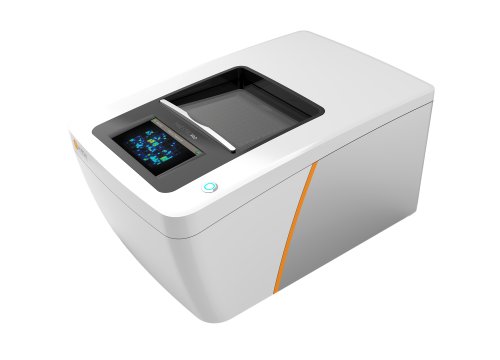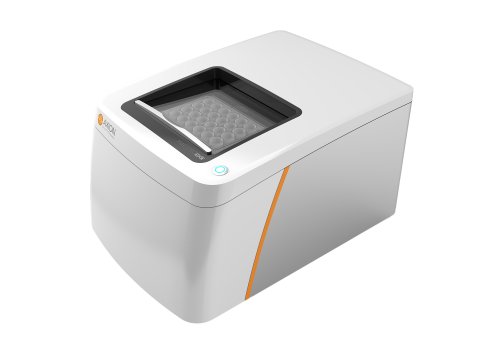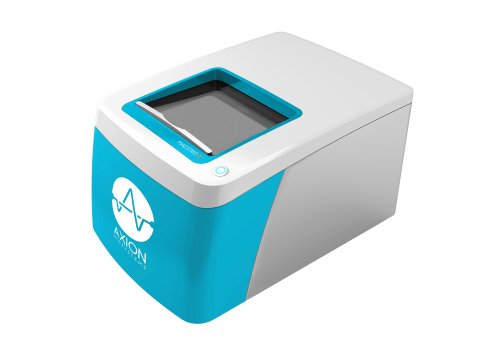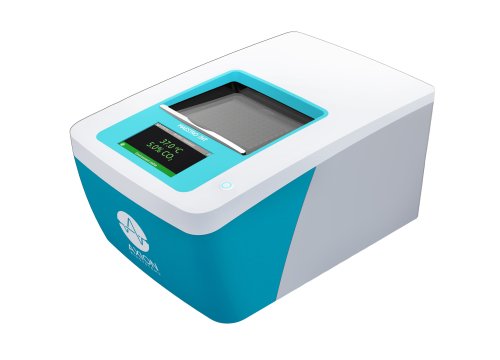Members include experts in neurobiology, stem cell biology, immuno-oncology, personalized medicine, and virology
ATLANTA--(BUSINESS WIRE)--Axion BioSystems, a leading life science tools company focused on developing and commercializing label-free, bioelectronic assays used to study the function of live cells in vitro, announces the formation of a Scientific Advisory Board (SAB). The SAB will be chaired by Jim Ross, Ph.D., founder and Chief Technology Officer, and will work closely with Axion BioSystems’ management team to help identify and prioritize Axion’s next generation of bioelectronic products.
“We are proud to have such an accomplished and diverse group of scientific experts joining our Scientific Advisory Board. The SAB’s expertise will be invaluable as we continue expanding our research and development activities,” said Tom O’Brien, CEO & President of Axion BioSystems.
The members of Axion BioSystems’ Scientific Advisory Board include:
Christopher Basler, Ph.D., is Professor and Director of the Center for Microbial Pathogenesis at Georgia State University. He obtained his Ph.D. from Albert Einstein College of Medicine in 1995. He became Professor of Microbiology at Icahn School of Medicine at Mount Sinai in New York City in 2013 and moved to Georgia State University in 2016. Dr Basler was elected Fellow of the American Academy of Microbiology in 2014 and was named a Georgia Research Alliance Eminent Scholar in Microbial Pathogenesis in 2016. His major research interests are understanding immune evasion and replication mechanisms of filoviruses, coronaviruses and other emerging RNA viruses.
Evangelos Kiskinis, Ph.D., is an Assistant Professor of Neurology at Northwestern University Feinberg School of Medicine, Director of the Stem Cell Core Facility, and a New York Stem Cell Foundation Robertson Investigator. He received Ph.D. from Imperial College and carried out postdoctoral training at Harvard University where he pioneered the first models of ALS using personalized stem cell-based approaches. Dr Kiskinis’ discoveries on excitability deficits in patient neurons using induced pluripotent stem cells (iPSCs) led to a clinical trial with a small molecule drug. His laboratory seeks to harness the power of pluripotent stem cells to understand how neuronal function is impaired in ALS/FTD patients and pediatric forms of epilepsy. He has been the recipient of prestigious fellowships from the European Molecular Biology Organization, the New York Stem Cell Foundation and the Charles A. King Trust Medical Foundation.
Alysson Muotri, Ph.D., is a Professor at the Departments of Pediatrics and Cellular & Molecular Medicine at UC San Diego. He is also the Director of the Stem Cell Program and Archealization Center at UCSD. His lab focuses on the re-creation of the human brain using stem cell technologies and brain organoids. Dr. Muotri received his Ph.D. in Genetics in 2001 from University of Sao Paulo, Brazil, and moved to the Salk Institute as Pew Latin America Fellow in 2002 for postdoctoral training in the fields of neuroscience and stem cell biology. His research focuses on brain evolution and modeling neurological diseases using human induced pluripotent stem cells and brain organoids. He has received several awards, including the prestigious NIH Director’s New Innovator Award, NARSAD, Emerald Foundation Young Investigator Award, Surugadai Award, Rock Star of Innovation, NIH EUREKA Award, Telly Awards among several others.
Manu Platt, Ph.D., is a Professor at the Wallace H. Coulter Department of Biomedical Engineering at Georgia Institute of Technology & Emory University. He received his Ph.D. from Georgia Tech/Emory joint program in Biomedical Engineering, and carried out postdoctoral training at MIT. Currently, his lab focuses on pediatric strokes in sickle cell disease and personalized and predictive medicine strategies for breast cancer. Dr Platt’s work has been successfully funded by NIH Director’s New Innovator Award, International AIDS Society, Georgia Cancer Coalition, and the National Science Foundation. Dr. Platt was inducted as inducted as a Fellow of the American Institute for Medical and Biological Engineering (AIMBE) in 2019. Integrated with his research program are his mentoring goals of changing the look of the next generation of scientists and engineers to include all colors, genders, and backgrounds. Aligned with that goal, Dr. Platt co-founded Project ENGAGES (Engaging the Next Generation At Georgia Tech in Engineering and Science), with Dr. Bob Nerem in 2013.
Jiwen Zhang, Ph.D., is Vice President of Regulatory Affairs at Passage Bio, Inc. Before joining Passage Bio, she had worked at Tmunity, GE Healthcare and biopharmaceutical companies including Johnson & Johnson, Merck, Wyeth Pharmaceuticals, and Sanofi-Aventis. Dr. Zhang has extensive experience in regulatory development across multiple therapeutic areas, including anti-inflammatory, anti-viral, metabolic, hematology, bone and growth. She has also had experience in developing drug/device combination products, and medical devices used at cell therapy point of care setting. She is leading various industry initiatives through the Standards Coordinating Body, the International Standards Organization (ISO), CASSS, and Asia Pacific Economic Cooperation Regulatory Harmonization Steering Committee (APEC RHSC). Dr. Zhang obtained her Ph.D. in Neuroscience from the joint program at the Rutgers University and the University of Medicine and Dentistry of New Jersey.
For more information, please visit https://www.axionbiosystems.com/scientific-advisory-board.
About Axion BioSystems, Inc.
Axion, a life science company located in Atlanta, GA, developed the first commercial multi-well MEA system, the Maestro™, an easy-to-use, non-invasive instrument that measures functional electrical signals from brain and heart cells. Axion have continued to expand on the promise of these label free, bioelectronic assays. Recently, Axion introduced the Maestro Z and ZHT systems, providing functional measures of cell growth, with specific applications in immuno-oncology and virology. Axion’s products are used by pharmaceutical and biotech companies, governmental agencies, and universities for disease modeling, drug safety, and drug discovery assays.
Contacts
Mike Clements
678-469-3439
mclements@axionbio.com



